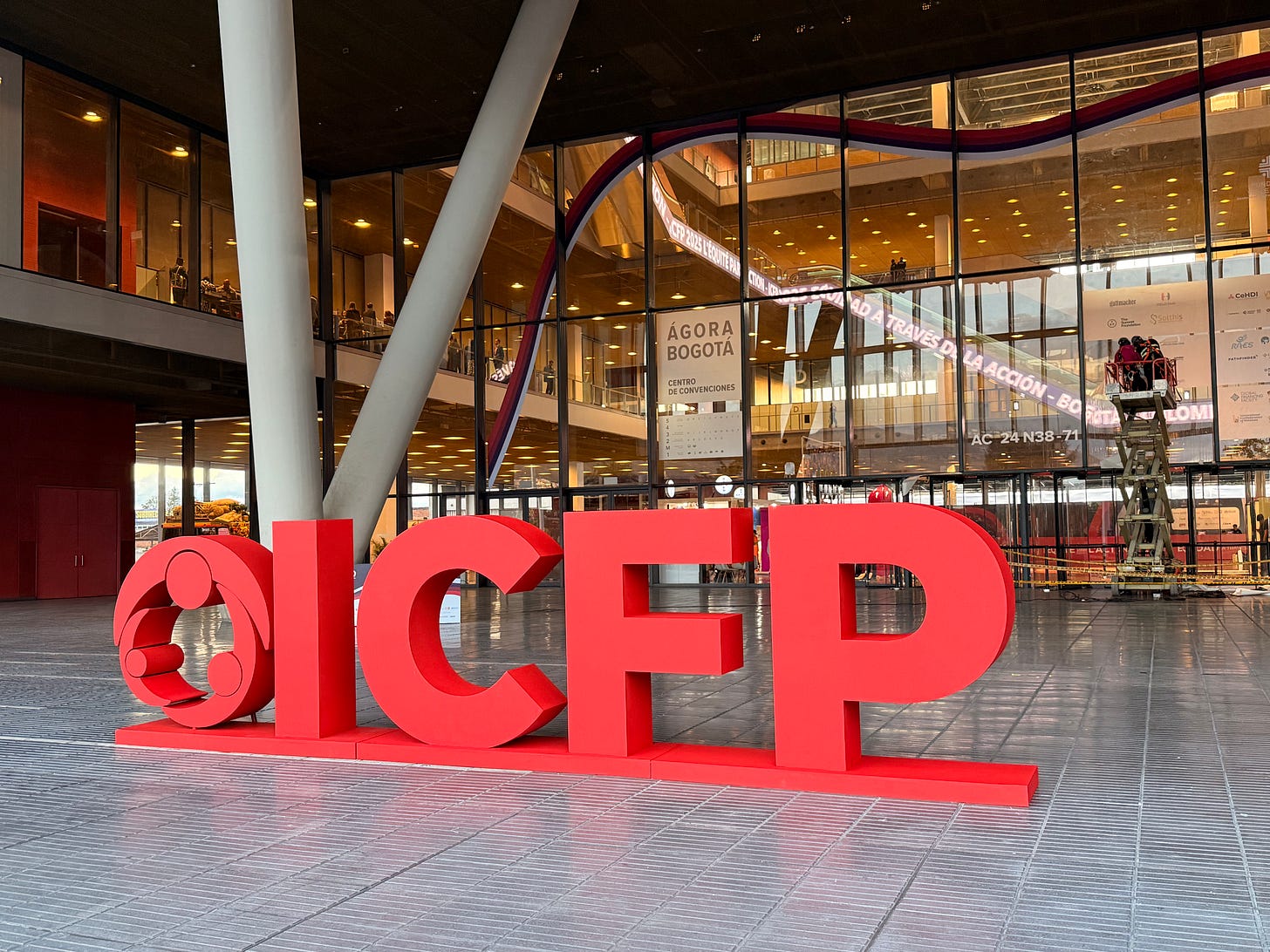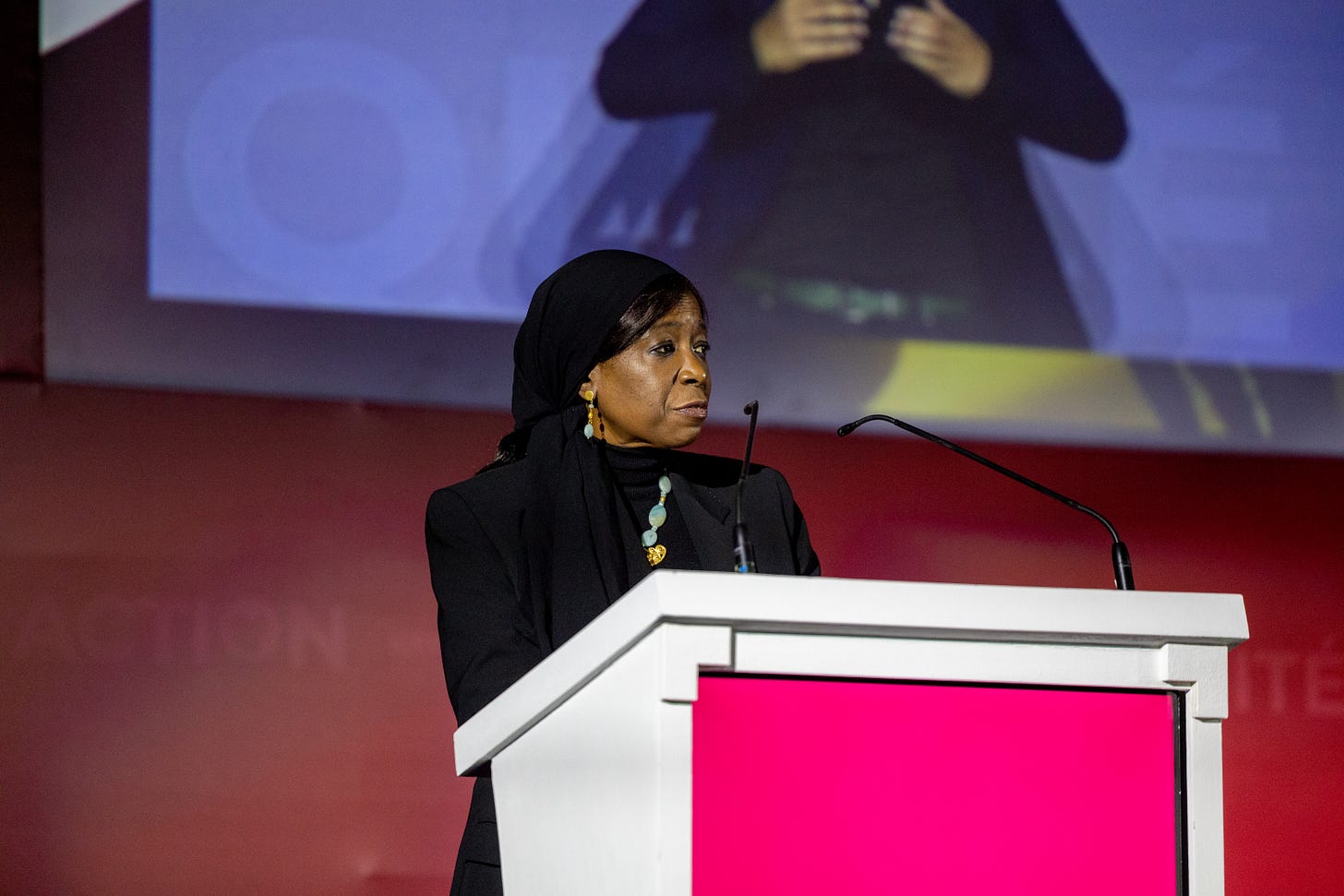ICFP 2025: Equity in Action Is Non-Negotiable for Family Planning Access
Chibuike Alagboso & Dabri Olohije
At the International Conference on Family Planning in Bogotá, conversations kept circling back to one idea that is both urgent and unavoidable: equity as action. From 3–6 November 2025, over 3500 delegates from around the world deliberated on a shifting reproductive health landscape that has been marked by funding cuts, political pushbacks, and widening gaps in access. For African countries navigating declining external assistance while pursuing health sovereignty, the topic was even more important.
In her opening remarks, United Nations Population Fund (UNFPA) Executive Director Diene Keita offered an important reminder:
“Family planning is not only a matter of health, it is a matter of rights. When women and adolescent girls have access to contraceptives, their pregnancies are more likely to be planned and safe, they are more likely to complete school, be employed and fulfil their potential, their children are healthier, and their societies are more prosperous.”
She warned that despite nearly one billion women using modern contraception today, progress is fragile—particularly for those displaced by conflict, living in poverty, or facing climate shocks. These inequities, she argued, demand faster, bolder action.
The urgency of this echoed throughout the youth pre-conference, where young advocates pushed for communities to interrogate its own habits. In a session led by Reproductive Health Advocates, Esenam Amuzu and Goodness Ogeyi Odey, participants were asked to take what they called an “Equity Pause” — a deliberate moment to examine whether their work in advocacy, communication, programming policymaking or budgeting leaves anyone behind. It was a simple idea with uncomfortable implications: equity cannot remain a theme for panels; it must be embedded in how decisions are made, how programmes are designed, and who is allowed to contribute to them.
At the heart of these discussions was a shared recognition of the pressures African countries face. Years of heavy dependence on external donors have left family planning programmes vulnerable to fluctuations in political priorities and global financing. As support declines, governments are forced to confront difficult questions about sustainability, domestic resource mobilisation, and the true meaning of health sovereignty. The pushbacks in the reproductive health space, from funding restrictions to gag rules and shrinking civic freedoms, only heighten the stakes.
For African policymakers, advocates, and practitioners, the message from Bogotá was clear: the path forward will require smarter investments, strategic integration of services, and procurement systems that maximise returns in tight fiscal environments. It will also demand more intentional communication and the active involvement of people most affected by reproductive health policies. These are not abstract aspirations; they are the practical ingredients of equity.
If there was a unifying thread at ICFP 2025, it was that the continent cannot afford for equity to remain a buzzword. As countries push toward self-reliance, their success will hinge on whether equity becomes the organising principle for decisions made long after the conference halls empty — in clinics, community rooms, budget offices, and national assemblies across Africa. Because at the end of the day, equity is something you do, not something you say.



